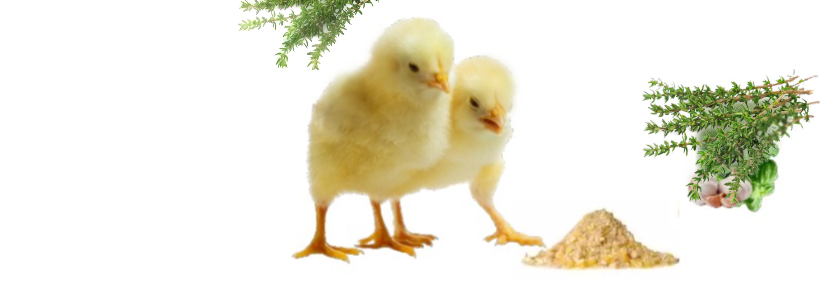Content available at: Español (Spanish) العربية (Arabic)
The growth of the poultry industry, intensive rearing conditions, and changes in environmental settings have increased the incidence of infections by various pathogens. This is especially critical during the first weeks of the broiler’s life, which is why considerable resources are needed to maintain the health of the birds through the supply of additives that allow controlling the incidence of microorganisms and the alteration of productive parameters.
Therefore, research based on a mixture of oregano, garlic, and thyme extracts is presented. These plants would be the best alternative to replace the growth-promoting antibiotics (GPA), used in poultry, ensuring food safety, improving production rates and providing animal welfare.
This option was identified in a study by Alejandra Victoria Ruiz-Real, from the Animal Science Department of the National University of Colombia (UNAL), Bogotá Campus, who stated that antinutritional factors (AF) decrease the protein digestibility of birds, such as some inhibitors of the enzyme trypsin derived from soybeans.
- They have also been found to cause intestinal mucosa damage, loss of endogenous amino acids, and decreased life performance.
- This situation has led to an increase in the use of plant extracts in the world, to enhance the performance level of birds in the poultry industry, both for its economic advantages and for the health benefits of consumers.
According to Alejandra Ruiz “the growth of the poultry industry, intensive breeding conditions, and changes in the environment have increased the incidence of infections by various pathogens.”
What are the antimicrobial effects?
Plant extracts are antimicrobials, which means that their properties have a toxic effect that kills pathogen populations and prevents animals from presenting any health problems such as diarrhea, enteritis, reduced intake, or growth retardation.
Experiment
As part of the research, an experiment was carried out with 480 one-day-old birds, divided into three treatments: Group A, with a diet without promoting additives; Group B, supplemented with GPA such as Bacitracin methylene disalicylate and halquinol; and Group C, with a mixture of oregano (10%), garlic (7%), and thyme (10%) plant extracts. All groups were given a 3% raw soybean mixture. The experiment was carried out until 35 days of age.
Results
Keep up to date with our newsletters
Receive the magazine for free in digital version
REGISTRATION
ACCESS
YOUR ACCOUNT
LOGIN
Lost your password?

